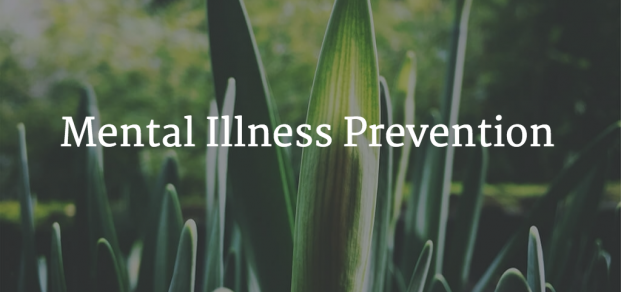Introduction
Prevention is better than cure, as the old saying goes. There are many well-publicised strategies about prevention of physical health problems and how to ensure physical wellbeing, but we know that mental wellbeing is equally as important.
What we already know
Whereas treatments for mental illness are targeted at specific conditions, the prevention of mental illness is aimed at everyone. Mental and physical wellbeing are unavoidably linked and physical illness is known to increase the risk of mental illness, with NICE estimating that 20% of individuals with a chronic physical health problem are likely to have depression (1).
From a young age, we know there is a social inequality in the distribution of mental illness, with children from the poorest households having a three-fold greater risk of mental illness than children from the richest households (2). We also know that low educational level, unemployment, debt and social isolation in older people are associated with higher frequency of mental disorders.
A 2011 report (3) evaluated a range of interventions aimed at preventing mental illness during various stages of life, particularly focussing on the potential cost reductions of these interventions. Some were aimed at early intervention in high-risk groups, but successful interventions aimed at the general population included:
- School-based Social and Emotional Learning programmes are cost-saving for the public sector and reduce healthcare burden and costs associated with criminality in later years
- Low-cost interventions in primary care offer good value for money in reducing alcohol-related harm
- Reducing mental health problems resulting from debt (individuals who initially have no mental health problems but find themselves having unmanageable debts within a 12-month period have a 33% higher risk of developing depression and anxiety-related problems compared to the general population who do not experience financial problems) by using a range of debt advice interventions
- Befriending of older adults leading to a reduction in depressive symptoms
Areas of uncertainty
There are many studies looking at specific interventions to reduce the impact or development of mental illness in those who are already unwell, but we have yet to find many effective interventions to prevent mental illness in the general population. Studies have made initial suggestions, e.g. higher fish consumption is associated with a reduced risk of depression or that social media may have a role in suicide prevention but causal relationships are yet to be determined.
What’s in the pipeline
Research is ongoing in many different areas and aimed at a diverse range of groups within the general population. We know that social factors are some of the toughest to address and take the longest to change.
ROAMER (A Roadmap for Mental Health Research in Europe), a project funded by the European Commission, aims to “create a coordinated roadmap for the promotion and integration of research in mental health and well-being across Europe” and one if its main objectives is to inform the public about the importance of mental health and wellbeing research. The project has predicted that estimated returns of £1 investment could be as high as £10.27 (for early screening) or £17.97 (for mental disorder prevention).
References
- NICE (2009) Depression in Adults with Chronic Physical Health Problem: Treatment and Management. London: NICE.
- Royal College of Psychiatrists. No health without public mental health: the case for action.
- Mental health promotion and mental illness prevention: The economic case. Knapp, McDaid, Parsonage (eds.). DoH/Centre for Mental Health
Acknowledgement
Written by: Josephine Neale
Reviewed by:
Last updated: Sep 2015
Review due: Sep 2016









